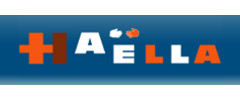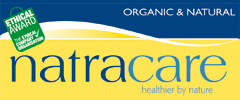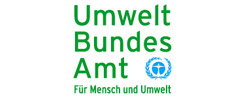WECF and Georgian partner RCDA celebrate World Toilet Day 2010 with opening of 30th school toilet, in a Georgian kindergarten
Georgian children in the village of Khamiskuri can finally go to hygienic toilets instead of using a dirty and dangerous pit latrine
19.11.2010 | WECF Press Release
In many rural areas of Georgia, children do not have access to adequate sanitation at home and at schools and kindergartens. They rely on dirty and old pit latrines that are unhygienic but especially very unhealthy. The pit latrines can usually be found far from school buildings, cold in the harsh Caucasian winters and posing considerable health risks especially for small children. Visiting the pit latrines is often so unhealthy that teachers and nurses rather prefer the children to defecate out in the open.
The kindergarten toilet in Khamiskuri is the 30th UDDT toilet for schools or kindergarten within the WECF network . The necessity of appropriate sanitary facilities is still not enough underlined by policy makers, health and school inspectors. On November 19, international World Toilet Day, the importance of adequate sanitation is celebrated and awareness is being raised. Worldwide, there are 2.5 billion people who do not have access to proper sanitation facilities. WECF and its partners promote sustainable sanitation systems, accessible and affordable for the poor rural population, protecting their health, the environment and re-using the excreta as safe fertilizers in agriculture. UDDT systems for schools, public buildings have been built and are in use in many regions in the EECCA region and in Georgia and are seen as the most appropriate solution for rural areas with no centralized waste water management.
This summer the United Nations General Assembly voted overwhelmingly for the resolution on the human right to “safe and clean drinking water and sanitation". For the women and environmental network WECF this agreement was a main step towards moving forward on implementing this newly aquired human right, for the poor and vulnerable, in particular women and children. Sascha Gabizon, Executive Director of WECF states: “The human right to sanitation has been little or not implemented so far, sanitation often does not have sufficient policy priority, and as a women’s network we are particularly worried about the lack of access to safe sanitation for school children in many, if not most, countries of this world. Girls need access to school toilets, separate from boys, with the possibility to close the doors, where menstrual hygiene is taken care of, and where girls are not harassed”.
WECF calls on all governments to commit to providing the right for each child to safe school sanitation taking girls special needs into account. At the same time, the right to sanitation should not infringe the right to safe water. Building a toilet without safe treatment of human faeces, often leads to pollution of drinking water sources. Therefore WECF has built sustainable toilets for more than 5000 poor people and 10.000 school children in Central Asia , Caucusus and Eastern Europe in the past 5 years, making sure faeces are re-used as soil fertilizer.
About WECF
The right to safe and affordable water and sanitation is one of the main missions of WECF, Women in Europe for a Common Future. WECF is a network of a hundred women's and environmental organisations in 40 countries. WECF has three offices: in the Netherlands, Germany and France. WECF mobilises women to find affordable solutions to the environmental health problems in their communities and encourages women in decision making.
Note to the editors:
For more information and / or photos please contact:
- Chantal van den Bossche, Press Officer +31-6 2812 9992, chantal.vandenbossche @ wecf.eu Women in Europe, +31 30 2310300, wecf@wecf.eu,
- Or contact project coordinator Rostom Gamisonia in Georgia: rurcom@gmail.com , www.rcda.ge, +99593338005
More information can be found at : www.wecf.eu, www.water.wecf.eu, www.sanitation.wecf.eu
This kindergarten toilet building has been built with financial support from the European Union in cooperation with Greens Movement of Georgia/FoE Georgia and WECF. In Khamiskuri 12 household UDD toilets have already been build in the frame of the ELA project, funded by the Dutch Ministry of Foreign Affairs, in cooperation with WECF.
WECF Documents on the right to water and sanitation:
• “Making Sustainable Sanitation work for women and men - integrating a gender perspective into sanitation initiatives” background information on the pressing need to integrate a gender perspective into the efforts to promote safe and sustainable sanitation. It provides guidance on how to mainstream gender into this sector. http://www.wecf.eu/english/publications/2009/genderandsanitation.php
• WECF Position Paper “The right to sanitation” http://www.wecf.eu/english/publications/2008/position-righttosanitation.php


































